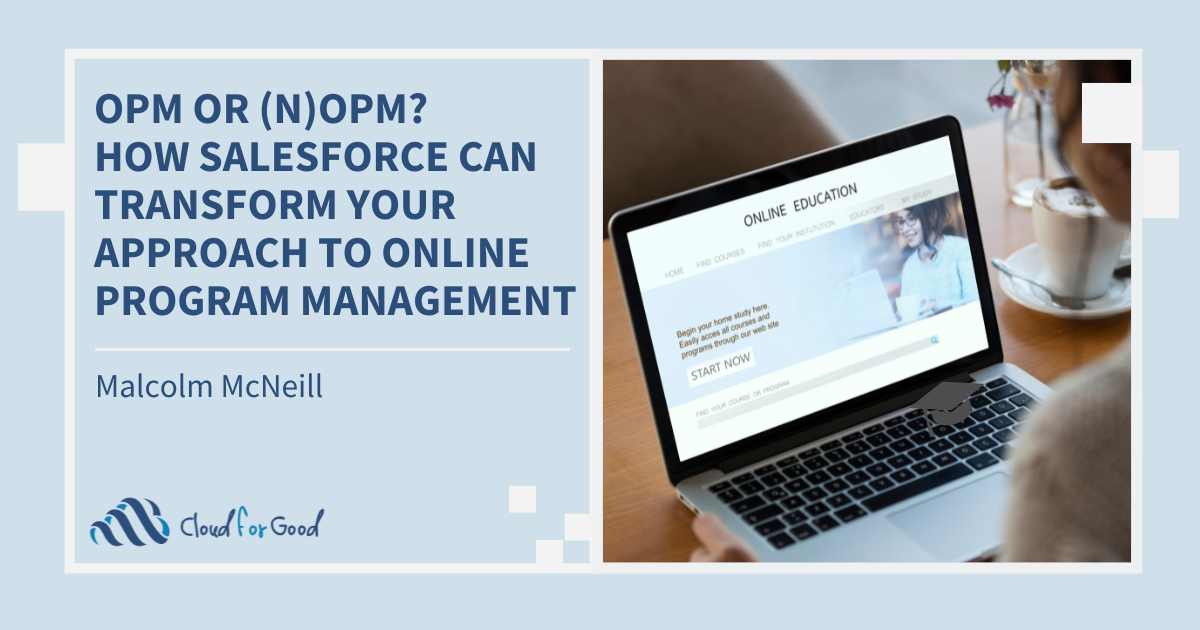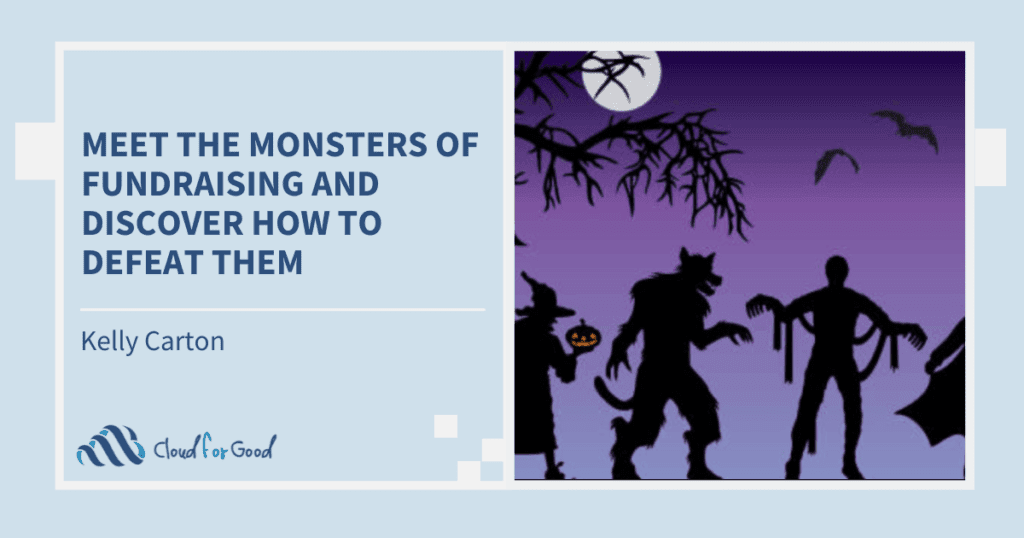To OPM? Or n(O)PM? That is the question.
No, that wasn’t the question that made it into Shakespeare’s tragedy Hamlet, but it is a legitimate question that higher education institutions using Online Program Management (OPM) systems to develop, market, and manage their online programs should ask themselves in light of the news of 2U, Inc., the largest OPM provider in higher education, filing for Chapter 11 bankruptcy this Summer. 2U’s situation has put the fates and availability of its programs in question, and for the more than 67,000 students enrolled in 2U programs and for partnering institutions that rely on OPMs to build and market their online courses and programs, it’s news that would understandably cause concern. 2U’s story also poses a bigger question that institutions must answer if they choose a different course (no pun intended) to take than the OPM one: what is a good alternative solution to build, manage, and market online education programs? Today, we’ll dive into the role that OPMs play in running online courses and how Salesforce can create alternative, sustainable opportunities for schools to manage their online programs.
The Role of OPMs in Online Education and Benefits
Online education and distance learning education programs have become a staple for many innovative-driven and future-thinking schools, but developing and running a robust online program can be time-consuming and resource-intensive for institutions and can require significant investment in technology, instructional design, marketing, student support, and other resources. This is where OPMs can help through the services that they typically offer:
- Revenue Stream: Successful online programs can generate significant, additional revenue for institutions beyond the revenue they generate from in-person student tuition.
- Marketing and Recruitment: OPMs often excel in marketing and student recruitment, utilizing sophisticated data analytics, targeted advertising, and other strategies to reach potential students. By partnering with an OPM, institutions can benefit from these advanced marketing and recruitment capabilities, helping to drive enrollment growth and increase program visibility in a competitive market.
- Course Design & Development: OPM companies bring specialized expertise in areas, including course design. By leveraging an OPM’s experience and resources, schools can enhance the quality of their online offerings and improve student outcomes. This expertise can be particularly valuable for institutions that are new to online education or lack the internal resources to develop and manage online programs effectively.
- LMS Technology and Infrastructure: OPMs provide access to advanced learning management systems (LMS) and other technology and tools.
- Program Management: OPMs offer support for program management. This support can include admin tasks like admissions processing, compliance, and reporting.
Drawbacks of OPMs
Despite the advantages of OPMs and the benefits they offer schools, there are some known criticisms of OPMs that schools currently using or considering using OPMs should consider and know.
- Risk Management and Long-Term Commitments: An OPM is owned and controlled by a third-party company, and institutions are bound by agreements with the OPM company if they agree to contract with them. However, if an OPM company experiences financial trouble or goes under, this would leave institutions without a solution if their OPM partner goes out of business. This would disrupt or risk current students enrolled in partner institutions losing access to a critical program for their course of study and leave them unable to complete important coursework towards their degree or certificate program. This is the concern and risk that 2U’s bankruptcy—should it go out of business—poses to its institutions. To address this risk, some institutions are now developing plans to move online programs in-house and ending their contracts with OPMs.
- Revenue Sharing and Cost Concerns: The OPM model involves institutions and contracted OPM companies agreeing to revenue-sharing agreements. This means that in exchange for the OPM’s services, institutions give a certain amount of the revenue generated by enrolled students of their online courses to the OPM provider. While this may seem like a fair trade-off for the resources and expertise provided, the long-term financial implications can be detrimental. Institutions may find themselves locked into expensive contracts that drain resources away from other essential areas, such as faculty development, student support services, and campus infrastructure. Over time, the cost of partnering with an OPM can outweigh the benefits, leaving institutions with less financial flexibility to invest in other essential areas and programs.
- Potential Increased Government Regulations of OPMs: OPM companies may become subject to new proposed regulations by the US Department of Education. If passed, these regulations could require OPMs to cease revenue-sharing and instead use more conventional fee-for-service models, subscription models, or other approaches, as well as dramatically alter the relationships between colleges and OPMs. The increased oversight from the federal government would impact schools currently partnering with OPMs for their online programs by requiring schools to use or generate their own capital to fund online education programs.
- Integrity: There have been integrity concerns over partnering with OPMs on whether or not an OPM provider will continue to focus on education over profitable growth. Due to uncertainty in financial markets, stock prices of OPM companies like 2U have fallen significantly; as a result, OPM companies must turn their focus on profitability to stay in business, causing schools to become wary of trusting in their OPM partner’s ability to continue to prioritize academics over profit.
- Loss of Institutional Control: Contracting with OPMs means institutions will not have full control or authority over the marketing strategies used to market their online courses, course design, and that online student support services will be in the hands of the OPM rather than the institution. This can risk inconsistency in institutional branding and academic standards.
- Data Privacy and Security: OPM providers often collect and manage large amounts of student data, including sensitive information about academic performance, financial aid, and personal details. Institutions must be cautious about who has access to this data and how it is used. In addition, OPM providers might have different cybersecurity measures in place than those of their partner institutions. This means that schools will not have any control of monitoring or preventing risks to security breaches if the OPM provider does not exercise that due diligence.
How Salesforce Can Transform or Replace Your OPM Solution
While OPMs offer specialized solutions, OPMs are primarily bundled services and “turn-key” solutions with limited adaptability. Salesforce, however, can support and transform an institution’s existing OPM solution. In addition, Salesforce and Salesforce-native tools can be a viable alternative OPM solution for many institutions. Here are some recommended and effective Salesforce software solutions or Salesforce-native applications that can perform common functions and services OPMs provide:
- Education Cloud: Institutions can use Salesforce’s powerful, integrated CRM functionalities to manage student constituent relationships and interactions, connect student data insights together into a unified, 360-degree view, and manage the entire student lifecycle, from initial inquiry and enrollment to graduation. With Salesforce Education Cloud, a configurable CRM platform for K-12 schools and higher education that uses the latest Salesforce innovations like a trusted data foundation, AI, and analytics, institutions can drive learner and institution success and support multiple use cases across the education journey like creating student care plans, application management, case management, course offerings, appointment scheduling, and accessing and analyzing real-time data to make data-driven decisions and strategies.
- Lifelong Learning: Salesforce for Lifelong Learning is an especially relevant and powerful software for institutions with online education programs, executive education, and continuing education programs. With Lifelong Learning, institutions can provide connected, personalized marketing and prospect engagement that makes it easy for learners to enroll across multiple channels, consequently accelerating enrollment growth and attracting and retaining lifelong learners. In addition, it can deliver a modern, digitalized registration storefront experience that quickly surfaces relevant course, program, and degree offerings to students.
- Recruitment and Admissions: A part of Education Cloud, Salesforce for Recruitment and Admissions helps increase conversion rates and engagement with prospective students, exceed enrollment goals, drive applicant success, and streamline the applicant review process with trusted AI, marketing automation, and predictive analytics. Its admissions and enrollment management software also provides staff one place to connect with students and families throughout the admissions funnel.
- Student Success: Also included in Education Cloud, Salesforce for Student Success helps institutions seamlessly connect the student experience, increase retention, power holistic advising, strengthen student engagement, and streamline services to help students reach their goals with a flexible, integrated platform that has automation and AI built directly into its CRM. In particular, Student Success’ Intelligent Degree Planning capability can provide institutions and students with an effortless, intuitive, and seamless degree planning experience that streamlines degree progress, empowers learners, and helps shape their academic journey up through graduation.
- Marketing Cloud: Institutions can use Marketing Cloud for running targeted marketing campaigns—taking advantage of marketing automations—for online programs. Marketing Cloud can also be used to build personalized communications, automated marketing journeys, and nurture leads through the student recruitment funnel, enabling functional teams within institutions to perform what OPM companies do in-house.
Let Cloud for Good Transform Your Online Education Program
Although OPMs offer specialized features for institutions’ online program management needs, they may no longer be a scalable or sustainable solution—and the failure of 2U may be a sign that it is time for schools currently engaged in OPM contracts to reconsider their relationships and services with OPMs. Salesforce’s versatility and customization options make it a compelling alternative for many institutions. However, by effectively leveraging Salesforce as an alternative solution, educational institutions can meet or even transform their online program management needs in conjunction with or without an OPM to streamline operations, enhance student experiences, support recruitment and enrollment for online programs, nurture leads through the recruitment funnel, and achieve their institutional goals.
Cloud for Good has extensive experience providing Salesforce consulting and technology implementations for the higher education space, and have enabled many functional teams at colleges and universities utilize the power of Salesforce and Salesforce-native apps to run and manage successful programs online. We can help your school:
- Increase Focus and Mission Alignment: Cloud for Good specializes in implementing solutions tailored to the exact needs of institutions through thorough discovery and documentation, all while enabling end users and teams.
- Consistent Strategy: Cloud for Good enables institutions to use Salesforce internally, empowering your institution with tools and strategies unique to our higher education world, which increases control over your operations. Cloud for Good can also work with a school’s existing policies or processes to maintain consistency under a new solution.
- Revenue-Generating Platform: Our team can help implement tailored and success-aligned platform solutions for schools that, when closely aligned to a school’s mission, can become a valuable and profitable revenue stream for their online programs.
- Growth Mindset: OPMs are a “turn-key” solution that gives schools limited control of their online programs, involves ongoing costs, and lacks insight into the process of managing and running a successful LMS. With Cloud for Good and our proven project methodology, we can deliver tailored implementations that are scalable and can grow with your institution for the long-term. Our experience and prior success enables us to help schools build a long-term strategy to become successful with their Salesforce solutions, and we can equip and instill in schools a solid understanding of ‘what’s next’ to minimize surprises with their technology.
If your institution has decided to reconsider using an OPM for your online education program, but needs help navigating a new solution with Salesforce, contact us today.





